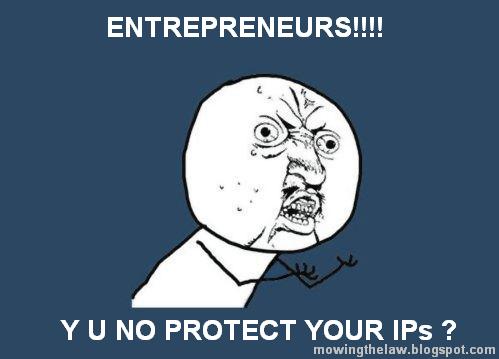
Dealing With Intellectual Property Rights On A Share Purchase
With the increased awareness of the value of intellectual property rights (IPRs) we are seeing more attention given to the issues they raise, especially when it comes to acquisitions. It is important for a buyer to know that they will retain the IPRs necessary to run the business they are purchasing and retain the value of the company.
How the buyer achieves this in respect of an acquisition will typically take place in the following four stages.
1. Due Diligence
Due diligence is typically carried out by a prospective buyer with regard to the IPRs of a company. Due diligence is a series of enquiries carried out in order to establish what rights the company owns and also its reliance on third party rights (or rights owned by the seller’s retained group) and any potential problems. There are registered IPRs (such as patents and trade marks) and unregistered IPRs (for example copyright). Most have a limited life span but some may last or can be extended indefinitely. IPRs are recognised throughout the world, although the law relating to them differs greatly in different jurisdictions. It is important to understand the business that is being acquired and completing effective due diligence enquiries will put the buyer in a better position when it comes to negotiating on price, or even deciding whether to go ahead with a deal.

The buyer or his lawyer will usually kick of the process by sending the seller an extensive set of due diligence enquiries to answer.
When acquiring the company itself it will typically not be necessary to take extra steps to acquire the relevant registered IPRs as they will remain registered in the name of the target company on completion. Details of these rights can be obtained through searches which will contain information relating to proprietorship, geographical spread, term and technology. A company may not be using all of the IPRs that it owns, this could be because they are part of future business plans.
Identifying unregistered rights is not as simple and in industries where the main assets are unregistered, such as fashion, media and publishing, identifying these assets and how they relate to the business will be of key importance. It is also important to identify IPRs used under licence. IP licences take on a variety of forms, some more recognisable than others. In all instances the following certain terms should be reviewed:
- Grant – exclusive (permitting use by the licensee only), non-exclusive (permitting the licensor to grant licenses to others) or sole (permitting use by the licences and licensor only).
- Territory – what is the geographical scope of any licence.
- Term – the length of any arrangements.
- Termination – to what extent is the licensee protected, will the licensor be able to terminate in the event of the change of control of the licensee?
- Royalties – these will need to be reasonable in relation to the term and nature of the licence.
2. Evaluation
On completion of the due diligence exercise the material and answers received are to be assessed in order to determine the significance of the IPRs to the company’s business. Common evaluation questions to be asked are:
- Does the company actually own the rights it is purporting to own?
- Are the key brands protected adequately? And are these protections then reflected in the registrations and filing policy?
- How often are new patent filings being made? Are there any patents that are nearing the end of their term?
- Will sale of the company result in any of the IPRs being terminated?
- Will any IPRs need to be shared?
Sharing IPRs
Although the company being sold is a legal entity of its own, and independent of other companines in the seller’s group, there may be a house mark in use across other parts of the group. If those rights are to be shared post completion then formal terms must be in place.
House Marks: Typically a buyer will want the right to use all trade marks previously in use by the target company. House marks, will normally only be permitted for the acquirer to use for a limited term and should be subject to strict controls.
Trade Marks: The same trade marks can be used by the company sold as by the seller’s retained group. Some instances will see the need to license the use of the mark. Issues likely to arise commercially would be the level of control over the mark retained by the seller given to the target company when it is owned by the buyer.
Patents: Patents can easily be split licensing arrangements.
After establishing that there will be shared IPRs it is necessary to determine who will own the IPRs and who will be using the IPRs under licence. Practically it makes sense that the company predominantly using the IPRs should own them and the other party should operate the IPRs under a licence.
3. Share Purchase Agreement
The share purchase agreement (SPA) should define the IPRs that are to be sold and determine any special provisions that need to be included relating to the IPRs. A buyer should expect the warranties in a SPA to afford them protection in the following areas:
- Accurate and complete schedule of rights;
- Fees paid for renewal and maintenance;
- No challenges, attacks or oppositions;
- No infringement by the business and by third parties; and
- Confidential information has not been disclosed to a third party except within the ordinary course of business and that the conduct of the business is not subject to restrictions by virtue of confidentiality obligations to third parties.
Additionally, to provide a level of comfort and certainty, there could be a warranty that the company owns or has the right to use all IPRs necessary to engage in its business. There may also be a number of indemnities or other provisions inserted in the SPA that relate to specific risks and issues identified in the buyer’s due diligence exercise.
4. Transfer of IPRs
When rights are owned by the company subject to a share purchase they will remain with the company. However, it is common for IPRs to be owned by another company in the seller’s group. In such circumstances the share purchase agreement would need to provide that the seller assigns those IPRs to the buyer at completion. Warranty coverage in the share purchase agreement must be extended to cover IPRs not owned by the company, unless warranties to that effect will be given in the documents assigning those rights.
If licenses remain with the seller’s ‘group licences’ there are different ways to approach the situation:
- obtain a new licence for the target effective from completion;
- licence under the buyer’s group licence;
- split licence or sub-licence – licences may allow for the benefit of the licence to be automatically assigned or assgined with the licensor’s consent. In practice this is the equivalent to obtaining a new licence as generally it would be on the same terms as the exisiting licence; or
- the company may have to change the way it operates to avoid infringement, in which case this would not be a satisfactory to a buyer and may affect the purchase price.
